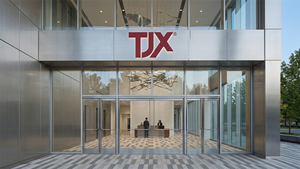Enanta Pharmaceuticals, Inc. (NASDAQ: ENTA), a clinical stage biotechnology company dedicated to creating small molecule drugs for viral infections and liver diseases, today announced the initiation of a Phase 2b, randomized, double-blind, placebo-controlled study to evaluate the efficacy and safety of EDP-938, its novel N-protein inhibitor, in adults with acute respiratory syncytial virus (RSV) infection who are at high risk of complications, including the elderly and/or those with congestive heart failure, chronic obstructive pulmonary disease (COPD) or asthma.
“We are excited to expand our RSV program with the progression of EDP-938 into another trial of high-risk patients, where we believe that treatment with our compound has the greatest potential to show optimal efficacy and clinical benefit,” commented Jay R. Luly, Ph.D., President and Chief Executive Officer of Enanta Pharmaceuticals. “We are eager to advance our broad clinical development plan that is focused on evaluating EDP-938 in these patients that have the greatest unmet need, continuing with our strategy of targeting populations at high-risk for RSV. In previous clinical studies, EDP-938 significantly improved the percentage of people with undetectable RSV RNA at the end of treatment, consistent with inhibiting viral replication. Additionally, EDP-938 has a favorable and consistent safety profile in approximately 500 people exposed to date. As we progress this study and advance our pipeline, we look forward to continuing to build our leadership position in this disease area.”
The Phase 2b, randomized, double-blind, placebo-controlled, multi-center, global study is designed to evaluate the effect of EDP-938 compared with placebo on the progression of RSV infection by assessment of clinical symptoms. Approximately 180 patients will be treated with 800 mg of EDP-938 or placebo for 5 days and evaluated for 28 days thereafter. The study will include non-hospitalized adult subjects with up to 72 hours of respiratory tract infection symptoms who test positive for RSV and negative for influenza virus and SARS-CoV-2. Patients will be considered high risk for complications after RSV infection if they have at least one of the following risk factors: age 65 years or older, congestive heart failure, COPD or asthma. The primary endpoint of the study is time to resolution of RSV lower respiratory tract disease symptoms as assessed by the Respiratory Infection Intensity and Impact Questionnaire (RiiQ™) symptom scale through Day 33. Secondary endpoints include additional clinical efficacy measures and antiviral activity compared to placebo, pharmacokinetics, and safety of EDP-938.
About EDP-938
EDP-938, Enanta’s lead N-protein inhibitor, is being developed for the treatment of RSV infection, and has been granted Fast Track designation by the U.S. Food and Drug Administration. EDP-938 is a nanomolar inhibitor of both RSV-A and RSV-B activity. EDP-938 is differentiated from RSV fusion inhibitors as the N-protein inhibitor targets the virus’ replication machinery and has demonstrated a high barrier to resistance in vitro. In preclinical studies, EDP-938 maintained antiviral potency across all clinical isolates tested and was active against viral variants resistant to other mechanisms. EDP-938 demonstrated a favorable safety, pharmacokinetic and drug-drug interaction profile in an extensive Phase 1 program. In a Phase 2 challenge study, EDP-938 achieved highly statistically significant (p<0.001) reductions in RSV viral load and clinical symptoms compared to placebo and was safe and well-tolerated, with infrequent adverse events. EDP-938 is currently being evaluated in RSVPEDs, a Phase 2 study in pediatric RSV patients, RSVTx, a Phase 2b study in adult hematopoietic cell transplant recipients with RSV, and RSVHR, a Phase 2b study in the elderly and/or those with congestive heart failure, chronic obstructive pulmonary disease (COPD) or asthma.
About Respiratory Syncytial Virus
RSV is the most common cause of bronchiolitis (inflammation of the small airways in the lung) and pneumonia in children under one year of age in the U.S. and a significant cause of respiratory illness in older adults and immunocompromised individuals.1 According to the Centers for Disease Control and Prevention, virtually all children in the United States get an RSV infection by the time they are two years old and one to two out of every 100 children younger than six months of age with RSV infection may need to be hospitalized.2 Globally, there are an estimated 33 million cases of RSV annually in children less than five years of age, with about 3 million hospitalized and up to approximately 120,000 dying each year from complications associated with the infection.3 RSV represents a significant health threat for adults older than 65 years of age, with an estimated 177,000 hospitalizations and 14,000 deaths associated with RSV infections annually in the United States.4
About Enanta Pharmaceuticals, Inc.
Enanta is using its robust, chemistry-driven approach and drug discovery capabilities to become a leader in the discovery and development of small molecule drugs for the treatment of viral infections and liver diseases. Enanta’s research and development programs include clinical candidates currently in development for the following disease targets: respiratory syncytial virus (RSV), SARS-CoV-2 (COVID-19) and hepatitis B virus (HBV). Enanta is also conducting research in human metapneumovirus (hMPV).
Enanta’s research and development activities are funded by royalties from hepatitis C virus (HCV) products developed under its collaboration with AbbVie. Glecaprevir, a protease inhibitor discovered by Enanta, is part of one of the leading treatment regimens for curing chronic HCV infection and is sold by AbbVie in numerous countries under the tradenames MAVYRET® (U.S.) and MAVIRET® (ex-U.S.) (glecaprevir/pibrentasvir). Please visit www.enanta.com for more information.
1. Centers for Disease Control & Prevention – Respiratory Syncytial Virus
2. Centers for Disease Control & Prevention – RSV in Infants and Young Children
3. Shi et al. Global, regional, and national disease burden estimates of acute lower respiratory infections due to respiratory syncytial virus in young children in 2015: a systematic review and modelling study. Lancet. 2017 Sep 2; 390(10098): 946–958:
4. Falsey AR, et al. Respiratory syncytial virus infection in elderly and high-risk adults. New Engl J Med. 2005;352(17):1749-59.
View source version on businesswire.com: https://www.businesswire.com/news/home/20221003005235/en/
Contacts
Media and Investor
Jennifer Viera
617-744-3848
jviera@enanta.com




